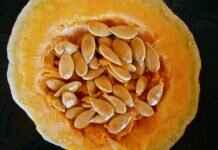This article delves into the many digestive benefits of psyllium husk, a natural soluble fiber that is gaining popularity for its ability to promote gut health, enhance digestion, and support overall wellness.
What is Psyllium Husk?
Psyllium husk is derived from the seeds of the Plantago ovata plant. This remarkable natural fiber supplement is known for its ability to absorb water and form a gel-like substance, which significantly aids in digestion.
Health Benefits of Psyllium Husk
- Improved Bowel Regularity: Psyllium husk can help regulate bowel movements by adding bulk to stool.
- Reduced Cholesterol Levels: Regular consumption may contribute to lower cholesterol, promoting heart health.
- Enhanced Gut Health: It supports a balanced gut microbiome, essential for overall well-being.
Improving Digestive Health
Psyllium husk is particularly effective in regulating bowel movements, which can alleviate constipation and promote a healthier digestive system overall.
Relieving Constipation
Constipation can be uncomfortable; however, psyllium husk acts as a natural laxative, softening stool and promoting regularity. Incorporating it into your diet can provide significant relief.
Managing Diarrhea
Interestingly, psyllium husk can also help manage diarrhea by absorbing excess water in the intestines, leading to firmer stools and improved digestive balance.
Supporting Heart Health
Psyllium husk plays a vital role in heart health by helping to lower cholesterol levels, which can reduce the risk of heart disease and enhance overall cardiovascular health.
How to Incorporate Psyllium Husk into Your Diet
Adding psyllium husk to your diet is simple and versatile. It can be easily mixed into smoothies, incorporated into baked goods, or taken as a supplement to boost fiber intake.
Using Psyllium in Smoothies
Adding psyllium husk to smoothies is an effortless way to increase fiber content. It blends well with various fruits and vegetables, enhancing both texture and nutritional value.
Baking with Psyllium Husk
Psyllium husk can be used in baking, especially in gluten-free recipes, to improve texture and provide moisture, making baked goods more enjoyable.
Potential Side Effects of Psyllium Husk
While psyllium husk is generally safe, some individuals may experience side effects. Understanding these can help users make informed decisions about its use.
Digestive Discomfort
Some may experience bloating or gas when first incorporating psyllium husk into their diet. Gradually increasing intake can help mitigate these effects.
Allergic Reactions
Though rare, allergic reactions to psyllium husk can occur, with symptoms including itching, rash, or difficulty breathing. It is advisable to consult a healthcare provider if any adverse reactions arise.
Conclusion: The Power of Psyllium Husk
Psyllium husk is a versatile and beneficial addition to any diet. Its digestive benefits, heart health support, and ease of incorporation make it a valuable supplement for overall wellness.

What is Psyllium Husk?
Psyllium husk is a remarkable natural fiber derived from the seeds of the Plantago ovata plant. This supplement has gained popularity due to its unique ability to absorb water, forming a gel-like substance that significantly aids in digestion. Let’s explore the various aspects of psyllium husk and its benefits for digestive health.
As a soluble fiber, psyllium husk plays a vital role in promoting gut health. It is often recommended for individuals seeking to improve their digestive function and overall wellness. When consumed, psyllium husk expands in the digestive tract, adding bulk to the stool and facilitating smoother bowel movements.
Digestive Benefits of Psyllium Husk
- Regulates Bowel Movements: Psyllium husk helps to maintain regularity by softening the stool, making it easier to pass. This can be particularly beneficial for those experiencing constipation.
- Relieves Diarrhea: Interestingly, psyllium can also help manage diarrhea by absorbing excess water in the intestines, leading to firmer stools.
- Supports Gut Health: The gel-like consistency of psyllium husk aids in the smooth passage of food through the digestive system, promoting a healthier gut environment.
Incorporating Psyllium Husk into Your Diet
Adding psyllium husk to your daily routine is simple and versatile. It can be mixed into smoothies, sprinkled on cereals, or incorporated into baked goods. This flexibility makes it easy to boost your fiber intake without significant dietary changes.
Conclusion
In summary, psyllium husk is a valuable natural fiber supplement that offers numerous digestive benefits. Its ability to regulate bowel movements and support gut health makes it an excellent addition to a balanced diet. By understanding how to incorporate psyllium husk into your meals, you can enhance your digestive wellness effectively.

Health Benefits of Psyllium Husk
Psyllium husk, a natural soluble fiber sourced from the seeds of the Plantago ovata plant, is gaining recognition for its remarkable health benefits. This versatile supplement not only supports digestive health but also contributes to overall well-being. Understanding the myriad advantages of psyllium husk can empower individuals to make healthier dietary choices.
- Enhanced Digestive Function: Psyllium husk serves as an excellent bulking agent, which aids in regulating bowel movements. By absorbing water, it forms a gel-like consistency that helps to soften stool, making it easier to pass. This can significantly alleviate issues related to constipation.
- Relief from Constipation: For those struggling with occasional constipation, incorporating psyllium husk into your diet can provide much-needed relief. Its natural laxative properties promote regularity without the harsh effects of synthetic alternatives.
- Management of Diarrhea: Interestingly, psyllium husk can also be beneficial for individuals experiencing diarrhea. By absorbing excess water in the intestines, it helps to firm up stools, contributing to a balanced digestive system.
- Cholesterol Reduction: Regular consumption of psyllium husk has been shown to lower cholesterol levels, particularly LDL (bad cholesterol). This reduction can lead to a decreased risk of heart disease, making psyllium an excellent addition to a heart-healthy diet.
- Weight Management: The high fiber content of psyllium husk promotes a feeling of fullness, which can aid in controlling appetite and supporting weight loss efforts.
Incorporating psyllium husk into your daily routine can be simple and effective. It can be added to smoothies, baked goods, or taken as a supplement. However, it is essential to drink plenty of water when consuming psyllium to prevent any digestive discomfort.
In conclusion, psyllium husk is not just a fiber supplement; it is a powerful ally in promoting digestive health, managing cholesterol levels, and supporting overall wellness. By understanding its benefits, individuals can make informed dietary choices that contribute to their long-term health.
Improving Digestive Health
Psyllium husk is a remarkable natural fiber supplement that offers a multitude of benefits for digestive health. By incorporating psyllium husk into your diet, you can experience significant improvements in bowel function and overall gut wellness.
One of the primary ways psyllium husk enhances digestive health is by regulating bowel movements. It achieves this by adding bulk to the stool, which facilitates easier passage through the intestines. This action can be particularly beneficial for individuals suffering from constipation, as it helps to soften the stool and promote regularity.
- Alleviating Constipation: Psyllium husk acts as a natural laxative, making it an effective remedy for occasional constipation. By absorbing water in the gut, it forms a gel-like substance that not only softens the stool but also increases its bulk, leading to more frequent and comfortable bowel movements.
- Managing Diarrhea: Interestingly, psyllium husk is not just beneficial for constipation; it can also help manage diarrhea. By absorbing excess water in the intestines, it aids in forming firmer stools and restoring digestive balance.
Moreover, the consumption of psyllium husk can foster a healthier gut environment. It acts as a prebiotic, feeding beneficial gut bacteria and promoting a balanced microbiome. This can lead to improved digestion and enhanced nutrient absorption, which are vital for overall health.
Incorporating psyllium husk into your daily routine can be simple and effective. It can be added to smoothies, baked goods, or taken as a dietary supplement. When introducing psyllium husk into your diet, it is advisable to start with small amounts and gradually increase to allow your digestive system to adjust.
In conclusion, psyllium husk is a powerful ally for improving digestive health. Its ability to regulate bowel movements, alleviate constipation, manage diarrhea, and support gut health makes it an invaluable addition to a balanced diet.
Relieving Constipation
is a common concern for many individuals, often leading to discomfort and frustration. Fortunately, psyllium husk, a natural source of soluble fiber, can offer significant relief. This article delves into how psyllium husk functions as a gentle laxative and its overall benefits for digestive health.
Psyllium husk is derived from the seeds of the Plantago ovata plant. When mixed with water, it forms a gel-like substance that adds bulk to the stool. This process not only helps to soften the stool but also promotes regular bowel movements, making it easier to pass waste. For those experiencing occasional constipation, incorporating psyllium husk into your diet can be an effective strategy.
| Benefits of Psyllium Husk | How It Helps |
|---|---|
| Softens Stool | Absorbs water and forms a gel-like consistency, easing passage. |
| Promotes Regularity | Increases stool bulk, encouraging normal bowel movements. |
| Supports Gut Health | Enhances overall digestive function and microbiome balance. |
To incorporate psyllium husk into your daily routine, consider adding it to smoothies, oatmeal, or baked goods. Start with a small amount, gradually increasing it to prevent any potential digestive discomfort, such as bloating or gas. Staying well-hydrated is also crucial when consuming fiber supplements like psyllium husk.
In conclusion, if you’re seeking a natural and effective solution for , psyllium husk may be the answer. By integrating this fiber-rich supplement into your diet, you can experience improved digestive health and enhanced overall well-being. Always consult with a healthcare provider before making significant changes to your diet, especially if you have pre-existing health conditions.
Managing Diarrhea
is a common concern that affects people of all ages. While there are various treatments available, psyllium husk has emerged as a natural remedy that can effectively help in managing this condition. This article delves into how psyllium husk works, its benefits, and practical ways to incorporate it into your diet.
Psyllium husk is a soluble fiber derived from the seeds of the Plantago ovata plant. When consumed, it absorbs excess water in the intestines, forming a gel-like substance that can help to solidify loose stools. This unique property makes it a valuable tool for those experiencing diarrhea by promoting a more balanced digestive environment.
One of the key benefits of psyllium husk is its ability to regulate bowel movements. By adding bulk to the stool, it aids in slowing down the passage of waste through the digestive tract, which can lead to firmer stools. This is particularly important for individuals suffering from acute or chronic diarrhea, as it helps restore normal bowel function.
| Benefits of Psyllium Husk for Diarrhea | Description |
|---|---|
| Water Absorption | Absorbs excess water in the intestines to form a gel-like consistency. |
| Stool Firming | Helps to solidify loose stools, providing relief from diarrhea. |
| Digestive Balance | Promotes overall digestive health by regulating bowel movements. |
Incorporating psyllium husk into your diet can be simple and effective. It can be added to smoothies, cereals, or even baked goods. For those who prefer a more direct approach, psyllium husk is also available in capsule or powder form as a dietary supplement.
However, it is important to start with a small amount and gradually increase it to avoid any potential digestive discomfort, such as bloating or gas. Always ensure adequate hydration when consuming fiber supplements to aid in their effectiveness.
In conclusion, psyllium husk is a natural and effective way to manage diarrhea by enhancing digestive balance and providing relief from loose stools. Its versatility and ease of incorporation into daily meals make it a valuable ally in maintaining digestive health.
Supporting Heart Health
Psyllium husk is not just a simple fiber supplement; it plays a crucial role in maintaining heart health. Its primary benefit lies in its ability to lower cholesterol levels, which is instrumental in reducing the risk of heart disease. High cholesterol is a significant risk factor for cardiovascular issues, and incorporating psyllium husk into your diet can be a proactive step towards better heart health.
Research shows that psyllium husk can effectively lower both total cholesterol and low-density lipoprotein (LDL) cholesterol, often referred to as “bad” cholesterol. This is largely due to its soluble fiber content, which binds to cholesterol in the digestive system and helps eliminate it from the body. By doing so, it reduces the amount of cholesterol that enters the bloodstream, thereby promoting a healthier cardiovascular system.
Furthermore, psyllium husk can also aid in regulating blood pressure. Maintaining a healthy blood pressure is essential for overall heart health, and studies suggest that a diet rich in soluble fiber, including psyllium, can contribute to this regulation.
- Cholesterol Management: Regular consumption of psyllium husk can lead to a noticeable reduction in cholesterol levels.
- Blood Pressure Support: It may help maintain healthy blood pressure levels, contributing to overall cardiovascular health.
- Weight Management: By promoting a feeling of fullness, psyllium husk can assist in weight management, further supporting heart health.
Incorporating psyllium husk into your diet is straightforward. It can be added to smoothies, cereals, or baked goods, making it easy to increase fiber intake without significant dietary changes. For those looking to improve their heart health, the addition of this powerful fiber can be a simple yet effective strategy.
In conclusion, psyllium husk serves as a valuable ally in promoting heart health. By helping to lower cholesterol levels and supporting healthy blood pressure, it offers a natural approach to reducing the risk of heart disease and enhancing overall cardiovascular wellness.

How to Incorporate Psyllium Husk into Your Diet
Incorporating psyllium husk into your diet is not only simple but also offers a multitude of health benefits. This natural soluble fiber can be easily integrated into various meals and snacks, making it a versatile addition to your nutrition plan.
- Smoothies: One of the easiest ways to include psyllium husk is by adding it to your smoothies. Simply blend a tablespoon of psyllium husk with your favorite fruits, vegetables, and a liquid base like water or almond milk. This not only boosts the fiber content but also enhances the texture of your smoothie.
- Baked Goods: Psyllium husk can be a game-changer in baking, especially for those following gluten-free diets. Incorporate it into recipes for muffins, bread, or pancakes. It helps retain moisture and adds structure, resulting in a delightful texture.
- Soups and Stews: You can also sprinkle psyllium husk into soups or stews as a thickening agent. It blends seamlessly and increases the fiber content without altering the flavor.
- Supplements: For those who prefer a more straightforward approach, psyllium husk is available in supplement form. You can take it with water or juice, following the recommended dosage on the packaging.
When incorporating psyllium husk into your diet, it’s essential to start with small amounts and gradually increase your intake. This helps your digestive system adjust and minimizes any potential discomfort.
In conclusion, the versatility of psyllium husk makes it easy to enhance your fiber intake. Whether you add it to smoothies, baked goods, or take it as a supplement, the digestive benefits it offers are well worth the effort. Embrace this natural fiber and enjoy a healthier lifestyle!
Using Psyllium in Smoothies
Incorporating psyllium husk into your smoothies is not only simple but also an effective way to enhance their fiber content. This natural soluble fiber, derived from the seeds of the Plantago ovata plant, blends seamlessly with a variety of fruits and vegetables, creating a nutritious and satisfying drink.
One of the primary advantages of adding psyllium husk to your smoothies is its ability to improve digestion. By absorbing water, psyllium husk forms a gel-like consistency that helps in regulating bowel movements. This can be particularly beneficial for those seeking to alleviate issues such as constipation or to maintain a healthy digestive tract.
Additionally, the inclusion of psyllium husk can enhance the texture of your smoothies, giving them a thicker and creamier consistency. This makes for a more enjoyable drinking experience while also providing a sense of fullness, which can aid in weight management.
- How to Add Psyllium Husk: Start with 1 teaspoon of psyllium husk per serving of smoothie. Gradually increase the amount as your body adjusts to the added fiber.
- Flavor Combinations: Psyllium husk is virtually tasteless, making it easy to blend with various ingredients. Consider mixing it with bananas, spinach, or berries for a nutrient-packed smoothie.
- Hydration Reminder: When using psyllium husk, it’s essential to drink plenty of water throughout the day to help the fiber do its job effectively.
In summary, adding psyllium husk to your smoothies is a simple and effective way to boost your fiber intake, improve digestive health, and enhance the texture of your drinks. By experimenting with different ingredients and maintaining proper hydration, you can enjoy a delicious and nutritious smoothie that supports your overall wellness.
Baking with Psyllium Husk
is an innovative approach that has gained popularity among those who follow gluten-free diets. This natural soluble fiber, derived from the seeds of the Plantago ovata plant, not only enhances the nutritional profile of baked goods but also significantly improves their texture and moisture content.
When it comes to gluten-free baking, achieving the right structure can be challenging. Traditional wheat flour contains gluten, which provides elasticity and strength to baked products. However, psyllium husk serves as an excellent substitute, offering a similar binding quality. It helps create a gel-like consistency when mixed with water, which mimics the properties of gluten, thereby enhancing the overall structure of the baked goods.
- Improved Texture: The addition of psyllium husk results in a softer and more cohesive crumb, making items such as bread and muffins more enjoyable.
- Moisture Retention: By retaining moisture during baking, psyllium husk helps prevent the dryness often associated with gluten-free recipes.
- Enhanced Nutritional Value: It adds dietary fiber, which is beneficial for digestive health, making your baked goods not only tastier but also healthier.
To incorporate psyllium husk into your baking, you can start by adding about 1 tablespoon per cup of flour in your recipes. This small adjustment can lead to a remarkable improvement in the final product.
Experimenting with psyllium husk can open new doors in gluten-free baking, allowing for a variety of delicious and satisfying treats. Whether you’re making bread, cookies, or pancakes, this ingredient can elevate your recipes to a new level of enjoyment.
In conclusion, not only enhances the texture and moisture of gluten-free recipes but also contributes to a healthier diet. Its versatility and effectiveness make it a must-try for anyone looking to improve their gluten-free baking experience.

Potential Side Effects of Psyllium Husk
While psyllium husk is widely regarded as a safe and beneficial dietary supplement, it is crucial for users to be aware of potential side effects. This understanding not only helps individuals make informed decisions but also ensures that they can use this natural fiber safely and effectively.
Digestive Discomfort
One of the most common side effects associated with psyllium husk is digestive discomfort. Some individuals may experience symptoms such as bloating, gas, or cramping, particularly when they first start incorporating psyllium into their diet. To minimize these effects, it is advisable to gradually increase intake rather than consuming large amounts at once. This allows the digestive system to adjust to the increased fiber content.
Allergic Reactions
Although rare, allergic reactions to psyllium husk can occur. Symptoms may include itching, rash, or even more severe reactions like difficulty breathing. If any adverse reactions are experienced after consuming psyllium, it is essential to consult with a healthcare provider immediately to assess the situation and determine the best course of action.
Interactions with Medications
Psyllium husk can also interact with certain medications, particularly those taken for diabetes or heart conditions. The fiber may affect the absorption of these medications, potentially reducing their effectiveness. Therefore, individuals taking prescription medications should consult with their healthcare provider before adding psyllium husk to their routine.
Dehydration Risks
Another important consideration is the risk of dehydration. Psyllium husk absorbs a significant amount of water, which can lead to dehydration if not enough fluids are consumed. It is recommended to drink plenty of water when taking psyllium to ensure proper hydration and to help the fiber work effectively in the digestive system.
In conclusion, while psyllium husk offers numerous health benefits, being aware of its potential side effects is essential for safe usage. By understanding these risks and taking appropriate precautions, users can enjoy the advantages of this natural fiber supplement while minimizing any adverse effects.
Digestive Discomfort
is a common concern for many individuals when introducing new dietary elements into their routine. One such element is psyllium husk, a natural soluble fiber known for its numerous health benefits. However, it is important to understand that some people may encounter bloating or gas when they first start incorporating psyllium husk into their diet.
The digestive system can react differently based on various factors, including the amount of fiber consumed and individual tolerance levels. When psyllium husk is added to the diet, it absorbs water and expands, which can lead to temporary discomfort as the body adjusts to this increase in fiber. To minimize these effects, it is advisable to gradually increase your intake of psyllium husk. Starting with a small amount and slowly working up to the recommended dosage allows the digestive system to adapt more comfortably.
In addition to adjusting the intake, it is essential to maintain adequate hydration. Drinking plenty of water helps facilitate the movement of fiber through the digestive tract and can significantly reduce the risk of experiencing bloating or gas. A well-hydrated body is more capable of handling the changes brought about by increased fiber consumption.
For those who are particularly sensitive, monitoring your body’s response to psyllium husk is crucial. If discomfort persists, consulting with a healthcare professional can provide personalized guidance and alternative options. This proactive approach ensures that individuals can enjoy the benefits of psyllium husk without the unpleasant side effects.
In conclusion, while some individuals may initially experience digestive discomfort when incorporating psyllium husk into their diet, gradual intake and proper hydration can help mitigate these effects. Understanding your body’s needs and seeking professional advice when necessary can lead to a more enjoyable and beneficial experience with this natural fiber supplement.
Allergic Reactions
to psyllium husk, although uncommon, warrant attention due to their potential impact on health. This natural fiber, derived from the seeds of the Plantago ovata plant, is celebrated for its digestive benefits. However, some individuals may experience adverse effects, including allergic reactions.
Symptoms of an allergic reaction to psyllium husk can vary in severity. Common signs include:
- Itching: This may occur on various parts of the body, indicating a possible allergic response.
- Rash: Skin reactions can manifest as redness, hives, or swelling, which may require medical attention.
- Difficulty Breathing: In severe cases, an allergic reaction can lead to respiratory issues, necessitating immediate emergency care.
If you suspect an allergic reaction to psyllium husk, it is crucial to consult with a healthcare provider promptly. They can assess your symptoms and recommend appropriate actions, which may include discontinuing use or conducting allergy tests.
To minimize the risk of allergic reactions, consider the following precautions:
- Start with a small dose: Gradually introducing psyllium husk into your diet can help determine your tolerance.
- Monitor your body’s response: Keep track of any changes or symptoms after consumption.
- Consult a professional: If you have a history of allergies, it’s wise to discuss the use of psyllium husk with your doctor.
In conclusion, while psyllium husk offers numerous health benefits, being aware of potential allergic reactions is essential. By taking necessary precautions and seeking medical advice when needed, you can safely enjoy the digestive advantages of this natural fiber.

Conclusion: The Power of Psyllium Husk
Psyllium husk is an incredibly versatile addition to any diet, renowned for its numerous health benefits. This natural soluble fiber, derived from the seeds of the Plantago ovata plant, is not only beneficial for digestive health but also plays a significant role in supporting heart health and overall wellness.
One of the most important advantages of psyllium husk is its ability to improve digestive health. By absorbing water, it forms a gel-like substance that helps to regulate bowel movements. This can alleviate issues such as constipation and promote a healthier digestive system. Additionally, psyllium husk can aid in managing diarrhea by absorbing excess water, leading to firmer stools and improved digestive balance.
Moreover, psyllium husk has been shown to support heart health by helping to lower cholesterol levels. Regular consumption can significantly reduce the risk of heart disease, making it a valuable supplement for those looking to enhance their cardiovascular health.
Incorporating psyllium husk into your diet is remarkably easy. It can be added to smoothies, baked goods, or taken as a supplement. For instance, adding it to smoothies not only boosts fiber content but also enhances texture and nutritional value. In baking, psyllium husk can improve the structure and moisture of gluten-free recipes, making them more enjoyable.
While generally safe, some individuals may experience minor side effects such as bloating or gas, particularly when first incorporating it into their diet. Gradually increasing intake can help mitigate these effects. In rare cases, allergic reactions may occur, so it’s advisable to consult a healthcare provider if any adverse symptoms arise.
In conclusion, the benefits of psyllium husk are numerous and varied. Its digestive benefits, heart health support, and ease of incorporation make it a valuable supplement for overall wellness. By understanding how to effectively use psyllium husk, individuals can enhance their health and well-being.












